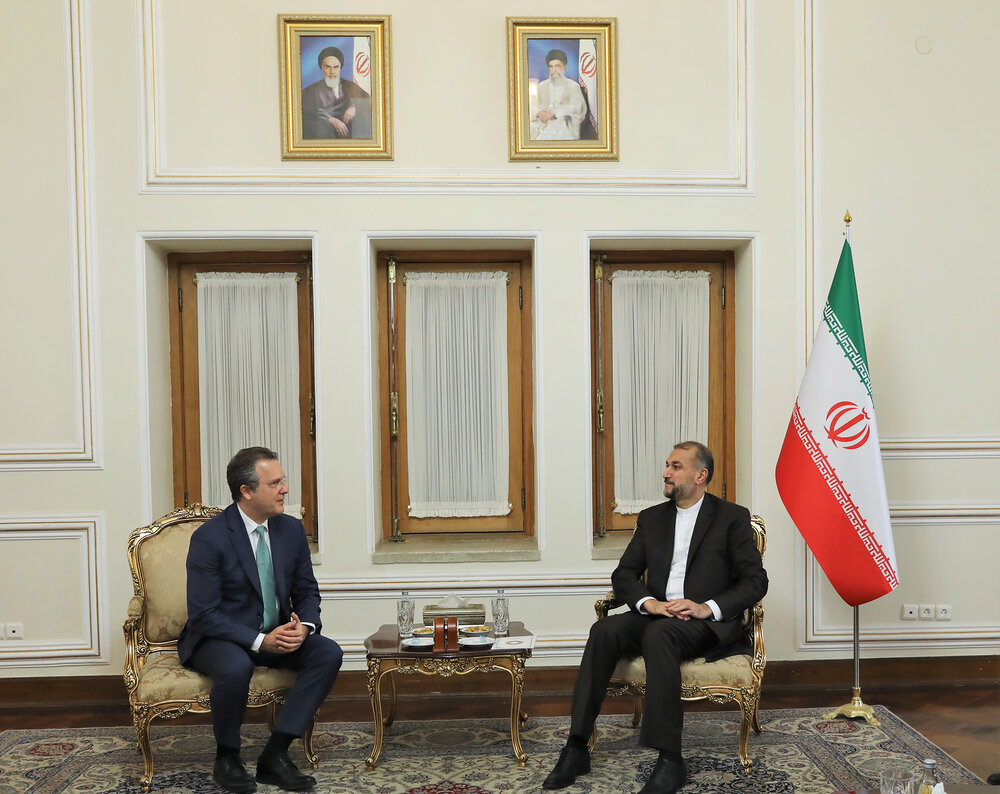Brazil deputy FM meets with Amir Abdollahian, Bagheri Kani

TEHRAN - Brazil’s Deputy Minister of Foreign Affairs Kenneth Nobrega, who has traveled to the Iranian capital Tehran for the 11th Iran-Brazil political consultative meeting, met with Iranian Foreign Minister Hossein Amir Abdollahian and Deputy Iranian Foreign Minister Ali Bagheri Kani.
In his meeting with the Brazilian diplomat, Amir Abdollahian referred to the 120-year history of Iran-Brazil relations, calling the historical ties between the two countries a valuable asset.
Amir Abdollahian pointed out the Iranian government’s special attention to developing relations with Latin America and added, “The Islamic Republic of Iran does not have any restrictions in the all-out development of relations with Brazil.”
The Iranian minister of foreign affairs highlighted the role of support by the public sectors of both countries to help resolve the problems of the private sector in the development of commercial and economic relations, according to the Iranian foreign ministry.
In his turn, the deputy minister of foreign affairs of Brazil pointed to the prevailing pragmatism in bilateral relations and emphasized the importance of developing relations with Iran for the Brazilian government.
Nobrega expressed satisfaction with the talks he held with his Iranian counterpart and emphasized the importance of increasing the exchange of political delegations.
Nobrega also met with Ali Bagheri Kani. In this meeting, Bagheri Kani said that Iran's membership in the SCO's Political-Security Group and its role in the "BRICS Plus" economic group will make it a major partner in international decision-making in the political, security and economic fields and enhance the position of the multipolar front in international equations, Al Alm reported.
During the meeting, Bagheri Kani referred to the recent international developments, including the war in Europe, stressing Iran's opposition to the war, adding that the lead in the international system has moved from unipolarity to multipolarity, which would determine the conditions and requirements of the new world order.
Bagheri Kani stressed the strength, dynamism and sustainability of the hard and soft components of Iranian power.
He said, “Iran's relations with Brazil are determined in terms of the responsibility, role and position of these two countries in the new system within the framework of the pluralistic approach.”
He explained that the unipolar regime is trying to shape global relations based on its own interests, and from this standpoint, the United States uses the embargo as a tool to draw an atlas of economics, politics and international security with the aim of obtaining the greatest amount of profit and benefit for itself and its allies and reducing the economic benefit of independent countries from global economic, political and security relations to Zero.
The Brazilian diplomat acknowledged the political and economic capabilities of the Islamic Republic of Iran in the region, saying, “Brazil seeks to increase international cooperation and interaction and enhance pluralism, and rejects unilateralism, including the imposition of economic sanctions.”
He expressed his hope to strengthen relations between Iran and Brazil, stressing the need to develop bilateral cooperation between the two countries in all political, economic and cultural dimensions.
